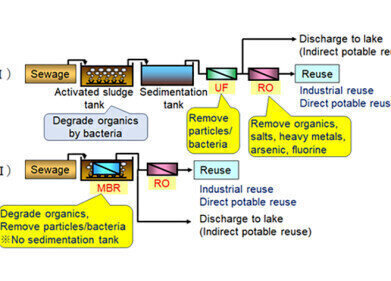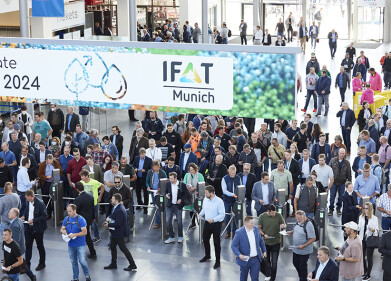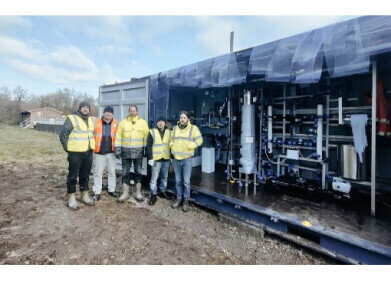Water/Wastewater
China Commits Funding to Tackle Water Pollution
Dec 27 2018
The Chinese government has indicated it will make significant funds available to a number of cities across the country to tackle their abysmal water pollution problems. Around 20 cities have been earmarked to receive the additional funding, which could total as much as 600 million yuan (£67.6 million) per city per year until 2020.
The statement used the exact phrase “black and stinking” to describe the state of water found in the offending cities. Caused by heavy pollution from nearby factories and improper methods of wastewater treatment, the issue not only renders the water unfit for human consumption, agriculture or manufacturing purposes, but also poses a health risk to the surrounding population.
Polluted land, sea and air
In some ways a victim of its own success, China has suffered due to rapid industrial growth and the pollution this has entailed. For many years the country suffered an ignominious reputation as having the most contaminated cities in the world, although in recent years it appears to have turned a corner in this respect.
In 2013, the government launched its 12th five-year plan, which set out clear goals in reducing all forms of pollution in the country, with a particular focus on China’s terrible air quality issues. It has also committed considerable funds towards researching new forms of renewable energy generation (in 2017, the country spent more than the rest of the world combined on green energy) and has shown marked progress in a number of spheres.
However, water quality continues to be a challenge for many cities across the country, especially when attempting to prevent pollution under tropical rainstorms. In a bid to address the issue, the government is now looking to devote almost £70 million to a select number of cities to help them to investigate new engineering technologies and control measures.
Slow progress
According to data collected by official government sources, 70% of groundwater samples collected from sites all over the country were deemed fit for human consumption in 2018. That’s an incremental progress on the figure last year, when 67.9% of samples were potable.
However, a concerning 6.9% of the collected samples showed that the rivers were polluted to such an extent that the water had “lost all functionality” and in many cases it was “black and stinking”. While that does represent an improvement from the 8.3% of samples collected in 2017, the government is aiming to bring the percentage below 5% before 2020.
The 20 or so cities which will be the beneficiary of the new funding are expected to use the money to investigate engineering solution and pollution control initiatives, as well as funnel private capital into wastewater treatment facilities. This is expected to be achieved via alternative financing models such as collaborations between the public and private sector.
Events
Apr 22 2024 Hannover, Germany
Apr 23 2024 Kuala Lumpur, Malaysia
Apr 24 2024 Sao Paulo, Brasil
May 05 2024 Seville, Spain
May 13 2024 Munich, Germany













